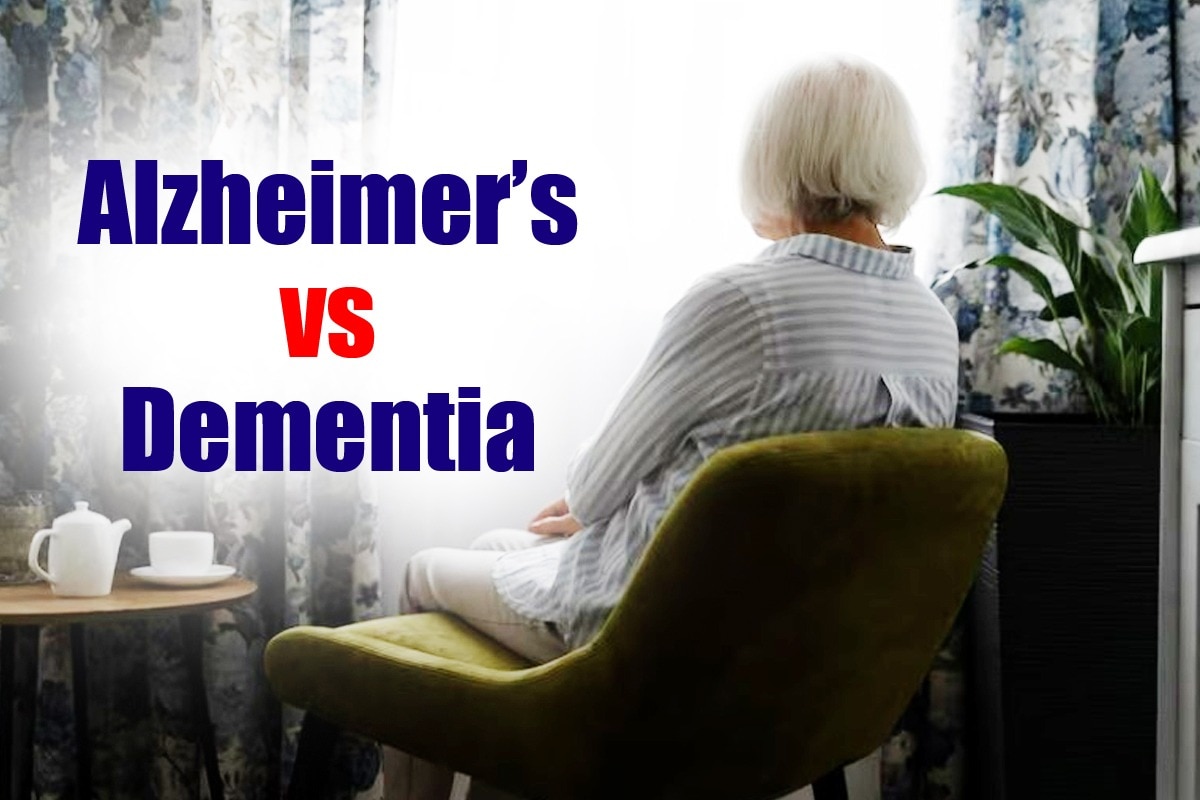Alzheimer’s and Dementia: Memory loss, not finding the right words is something that occurs frequently in older people. But, it doesn’t have to be dementia or Alzheimer’s. However, these terms are used interchangeably.
Dementia and Alzheimer’s: The brain is the center of our being, technically. That is why we are able to perform all functions in our day to day. From speaking, listening to responding, everything is attributed to the neurotransmitters in our head. It is often said that we should eat this, do that to improve our memory or improve our brain function. Speaking of memory, when people start to forget things or something interferes with communication skills, it is often associated with dementia or Alzheimer’s. There is no definitive age from when someone can take effect, however, adults over the age of 60-65 are more vulnerable to it. We often get confused between the two because the symptoms tend to overlap.
What is dementia?
According to the World Health Organization (WHO), dementia is a syndrome, generally chronic or progressive in nature, that leads to deterioration of cognitive function (i.e., the ability to process thought) beyond what might be expected. of the usual consequences of biological aging. Dementia results from a variety of diseases and injuries that primarily or secondarily affect the brain, such as Alzheimer’s disease or stroke.
Signs and symptoms:
- Memory loss
- Difficulty communicating or finding words
- Difficulty with visual and spatial skills, such as getting lost while driving
- Difficulty reasoning or solving problems
- Difficulty handling complex tasks
- Difficulty with planning and organization.
- Difficulty with coordination and motor functions.
- confusion and disorientation
What is Alzheimer’s?
Alzheimer’s disease is a brain disorder that slowly destroys memory and thinking skills, and eventually the ability to perform the simplest tasks. Alzheimer’s is a type of dementia that affects memory, thinking, and behavior. The symptoms eventually become severe enough to interfere with daily tasks.
According to the Alzheimer’s Association, Alzheimer’s is the most common cause of dementia, a catch-all term for loss of memory and other cognitive abilities severe enough to interfere with daily life. Alzheimer’s disease accounts for 60-80% of dementia cases.
According to Healthline.com, in people with Alzheimer’s disease, brain cells die and connections between brain cells can break down. One of the hallmark symptoms is abnormal protein deposits in the brain called plaques and tangles.
Plaques are dense clumps of proteins that can block communication between neurons. Tangles are proteins that twist and lead to the death of healthy brain cells.
In advanced Alzheimer’s disease, the brain shows significant shrinkage.
Signs and symptoms:
- Difficulty remembering recent events or conversations
- Apathy
- Depression
- impaired judgment
- disorientation
- Confusion
- behavior changes
- Difficulty speaking, swallowing, or walking in advanced stages of the disease
Therefore, the basic difference between the two is that dementia is a general term, while Alzheimer’s can become a cause leading to dementia.
$(document).ready(function(){
$(‘#commentbtn’).on(“click”,function(){
(function(d, s, id) {
var js, fjs = d.getElementsByTagName(s)[0];
if (d.getElementById(id)) return;
js = d.createElement(s); js.id = id;
js.src = “//connect.facebook.net/en_US/all.js#xfbml=1&appId=178196885542208”;
fjs.parentNode.insertBefore(js, fjs);
}(document, ‘script’, ‘facebook-jssdk’));
$(“.cmntbox”).toggle();
});
});
